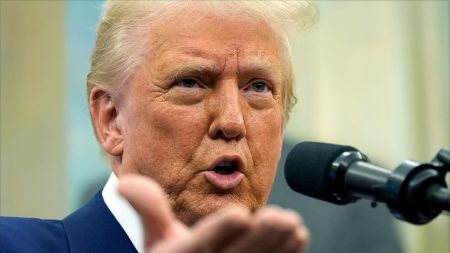The Shift from Environmental to Economic Messaging
In recent years, the clean energy sector has undergone a strategic shift in its messaging. Historically, the emphasis was on the urgent need to combat climate change, highlighting environmental benefits and the dangers of global warming. However, as political landscapes evolved, especially under leaders like Donald Trump, the focus has pivoted to the economic advantages of clean energy. This shift underscores how clean energy initiatives can drive wealth creation, job growth, and economic competitiveness. By aligning with current political priorities, the sector aims to garner broader support, particularly from those skeptical of climate change but receptive to economic nationalism.
The Role of Nationalism and Political Climate
The rise of nationalism and economic nationalism under the Trump administration has significantly influenced this messaging shift. The U.S. renewable energy industry and global bodies like the United Nations have recognized the need to appeal to economic self-interest. This strategic adjustment is evident in the industry’s emphasis on "American energy dominance" and the U.N.’s highlighting of the $2 trillion invested in clean energy projects. By framing clean energy as a driver of economic growth and national strength, the sector aims to resonate with leaders and policymakers focused on economic prosperity.
The Power of Self-Interest in Driving Change
The shift towards economic messaging leverages the powerful motivator of self-interest. Industry leaders argue that appealing to personal and national economic benefits can be more effective than solely environmental concerns. This approach is illustrated by Elon Musk’s ventures in electric cars and solar energy, which exemplify how profitability can drive innovation and adoption in clean energy. By emphasizing economic opportunities, the sector aims to broaden its appeal, particularly to conservatives and business interests.
Industry Leaders and Lobbyists Pitching Wealth Creation
Industry leaders and lobbyists are actively promoting clean energy’s economic potential. During a lobbying blitz in Washington, organizations like the Solar Energy Industries Association and the Carbon Capture Coalition emphasized job creation and global competitiveness. These efforts target policymakers who may be indifferent to environmental arguments but are swayed by economic rationale. The lobbying campaign underscores the sector’s commitment to reshaping perceptions of clean energy as a lucrative industry.
The Effectiveness of Economic Arguments in Policy Influence
The economic argument is proving effective in influencing policy. By reframing clean energy as an economic opportunity, advocates are gaining traction with lawmakers. This shift is particularly significant in the U.S., where the current administration’s focus on economic nationalism makes the economic case for clean energy more compelling. Industry leaders believe that highlighting job creation and wealth generation can help retain crucial tax incentives and policy support, essential for competing globally.
Balancing Economic and Environmental Goals
While the economic focus is strategic, it also raises questions about balancing economic interests with environmental goals. Critics argue that relying solely on market forces may not achieve necessary emissions reductions. However, given the current political climate, emphasizing economic benefits may be the most feasible path forward. This approach acknowledges the importance of aligning environmental efforts with economic realities, making the transition to clean energy more politically palatable.
In conclusion, the clean energy sector’s shift towards economic messaging reflects a strategic adaptation to current political and economic realities. By emphasizing job creation, wealth generation, and national competitiveness, the sector aims to broaden support and influence policy. While environmental benefits remain paramount, the evolved approach highlights the sector’s willingness to align with prevailing priorities to achieve sustainable progress.















